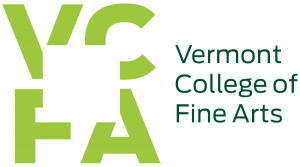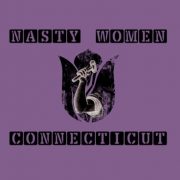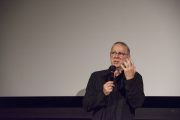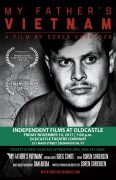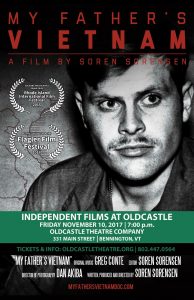Student Spotlight: Louisa de Cossy, Nasty Women Film Fest New England
VCFA MFA in Film student Louisa de Cossy, working with a team of women in her hometown of New Haven, Connecticut, helped to organize an exciting new film festival: Nasty Women Film Festival New England. The inaugural Nasty Women Film Fest took place this past November (2017) at the Ely Center for Contemporary Art. All proceeds from the event benefited Planned Parenthood of Southern New England (PPSNE), Integrated Refugee & Immigrant Services (IRIS), and Make The Road CT.
Nasty Women Connecticut is a collective of artists, activists and curators living in New Haven,
CT. In the Spring of 2017 we came together and welcomed the community to submit works of
art to an open call for works of art at the Institute Library in New Haven. It was at this incredibly
successful event that the idea to create a film festival in New England emerged, again bringing
diverse voices within our community, while utilizing the arts as the vehicle of communication.
This Film Festival would focus on issues affecting those on the fringes of our society; women,
Immigrants, LGBTQ and black community. This year NWCT (Nasty Women CT) teamed up with
ArtSpace City-Wide Open Studios which was based on the theme of “Fact vs Fiction.” Along
similar lines, the Nasty Women Film Event encouraged all film submissions to represent real
stories and experiences which centered or touched on the themes of women and LGBTQ issues,
racism, immigration and refugee issues. The organic growth of this Festival came to fruition
with support from the Arts Council, The Ely Center of Contemporary Art and ArtSpace. Our
primary focus and a goal we were able to realize was raising community awareness and funds
for Planned Parenthood, IRIS and Make the Road CT.
It was the spirit of collaboration and shared intent that fueled us throughout this process. One
of our main objectives was to show others how doable it is to run a Film Event in one’s
community and to bring people, young and old, together for discussion, art-making and
screenings. By giving voice to those who are disenfranchised and often silenced or
misrepresented, we sparked dialogue and critical conversation, while raising money and
awareness about issues we face firsthand.
(NWNH) invited all New England film makers, experienced or novice, to participate in our Nasty
Women Film Event, the first in North America. We included 15 films in total out of 65
submissions and screened these on opening night– as part of the project we also filmed
testimonials of what it means to individuals to be a “Nasty Woman.” We filmed these interviews
with members of the New Haven community during Open Studios. The film exhibition which
included these testimonials, provided a forum for communication about critical challenges
through the medium of moving image.Film-making is a critical agent of social change, and the
NWNH Film Event offered an opportunity for artists of all ages to share their voice, art, and, stories
in an open and inclusive forum. We plan to continue to foster community, raise awareness and
build this movement by hosting the film event each year and continuing to archive similar
testimonials which we will bring to colleges and universities in the coming year.
The full list of organizers include:
Luciana McClure, Lead Organizer
Debbie Hesse, Lead Organizer
Louisa de Cossy
Trish Clark
Abbie Kundishora
Laurie Sweet
Carolyn Paine
Valerie Garlick
Megan Manton
The Arts Paper published a great recap of the first night of the festival with the following quote from Lead Organizer, Luciana McClure:
“I think right now, considering everything that’s happening from the current administration, there’s a need for solidarity … a need for people to feel that their voice matters. I think having the film fest allows people to hear other stories. It allows us to create a dialogue, engage with people that might not think the same way, might have different upbringings or just be different in a sense that we might not understand. We grow up watching films, it’s always been part of everyone’s life. People sit down and watch movies together. Storytelling and filmmaking has been part of our world for generations. It’s bringing people together, and I think it’s a positive way to bring people together in a common space to share ideas.”
To learn more about this incredible collaboration visit their website. We look forward to seeing what 2018 has in store for Nasty Women Connecticut!
Asics shoes | 2021 New adidas YEEZY BOOST 350 V2 “Ash Stone” GW0089 , Ietp
